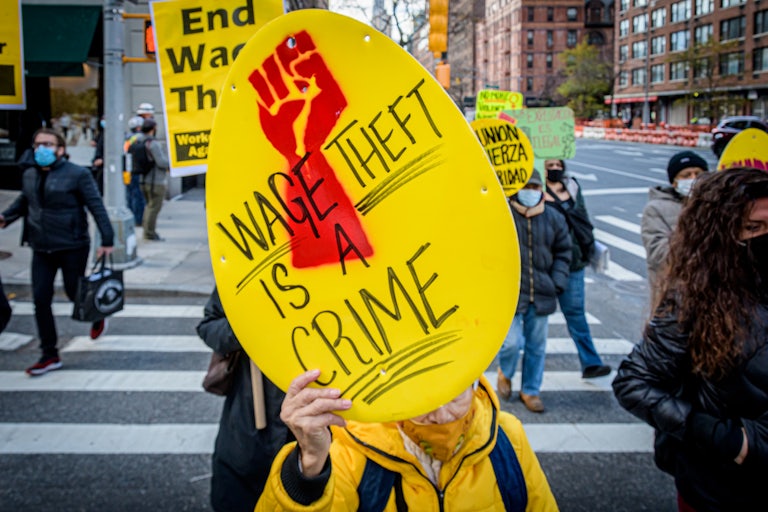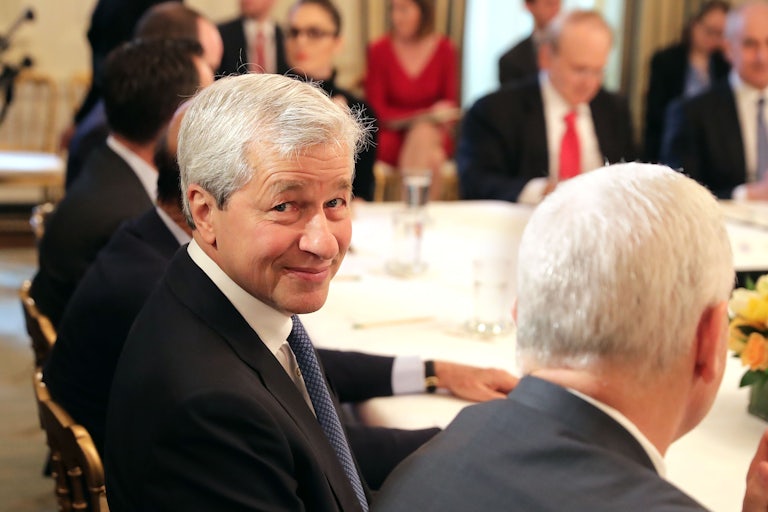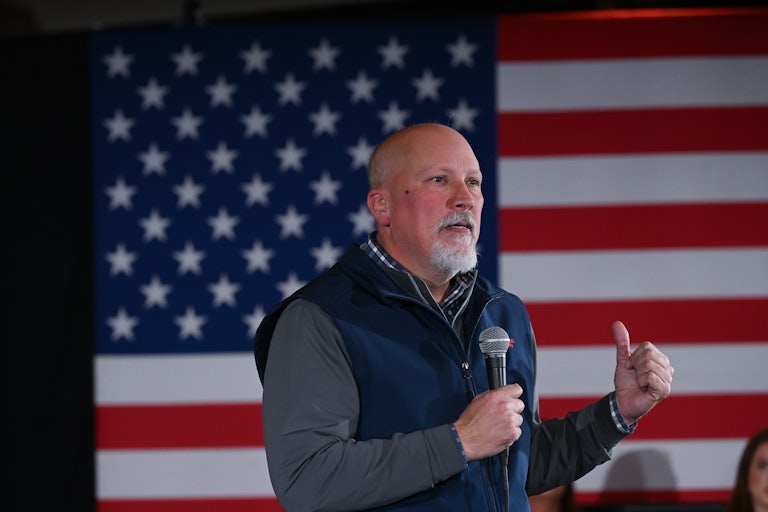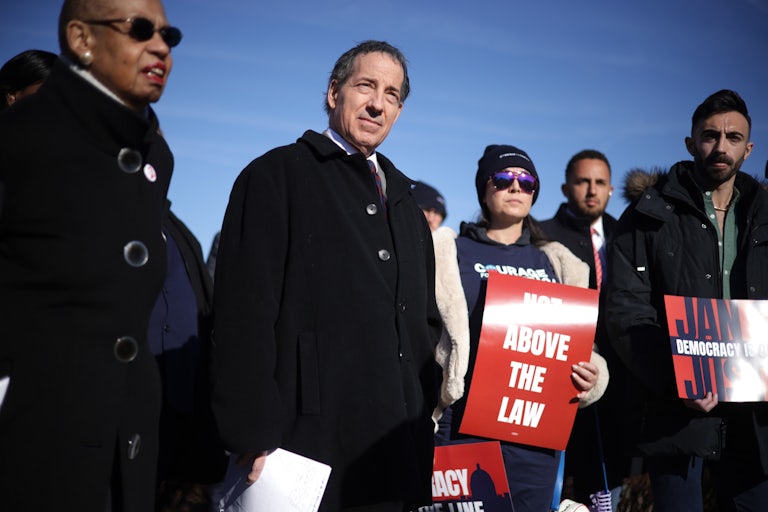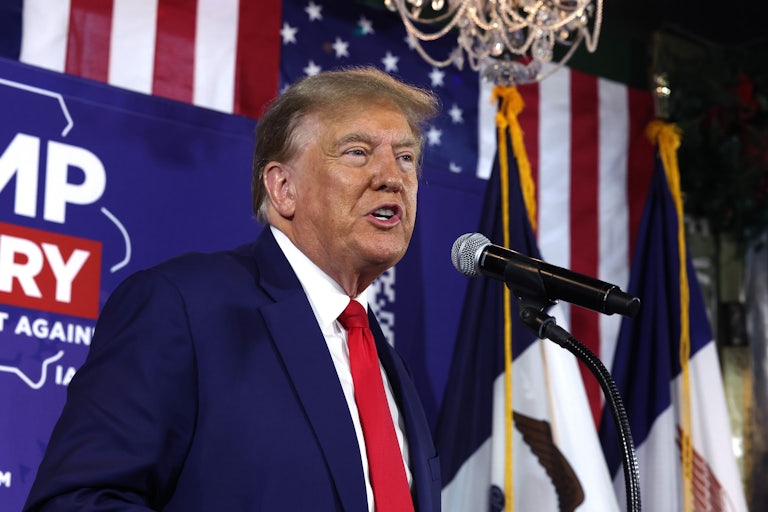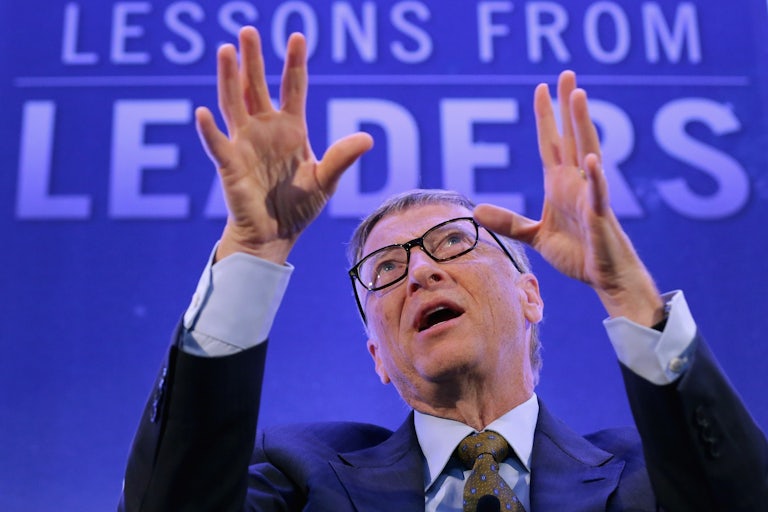The Brokered Convention That Could Break the Democrats
Those who want to replace Biden on the 2024 ticket are glossing over the brutality and chaos that would ensue.

On a debate stage in 2019, former Department of Housing and Urban Development Secretary Julián Castro went there: suggesting that fellow presidential contender Joe Biden, who was 76 years old at the time, suffered from memory issues. “Are you forgetting what you said two minutes ago?” Castro needled. “Are you forgetting already what you said just two minutes ago?” Democratic elites were quick to swoop, lambasting Castro for his incivility. “That was a disqualifier, the way he handled it,” Rahm Emanuel said in the ABC spin room shortly afterward.
During that election cycle, Democrats seemed bent on eating their young; all but Pete Buttigieg were ground up in the gears even as the party changed its debate rules to allow Republican dowager Michael Bloomberg to briefly live out his youthful fantasy of running for president. By party acclimation, the septuagenarian Biden was anointed champion after the South Carolina primary. All thoughts of his age were set aside—until this year, when those same party elites were blindsided by the fact that time only moves forward. Biden had in fact gotten quite old. Then they were rocked anew by the Hur Report, which made Castro look prescient.
So now, the hot new thing in the imaginations of the political commentariat is replacing Biden atop the ticket. I’ve long taken a dim view of this prospect, but I want to leave my feelings aside to provide proponents of this idea with something that was sorely lacking during the 2020 primary: foresight. If you’re contemplating moving on from Biden, here’s what you need to know: It will be a brutal road to Election Day, marked by gallons of intraparty bad blood and media coverage so unfavorable to Democratic interests that it will blow your mind.
This fundamental truth is getting glossed over by the likes of Ezra Klein, whose recent audio manifesto in The New York Times promises that Democrats “have a better option than Biden.” It takes several thousand words of throat-clearing, but eventually Klein’s “better option” does kind of hove into view: Kamala Harris, probably, and if not her, then a warm body can be plucked from the “ton of talent in the Democratic Party right now.” And this would all get sorted out at the Democratic National Convention in August. “Could it go badly?” asks Klein. “Sure. But that doesn’t mean it will go badly. It could make the Democrats into the most exciting political show on earth.”
Setting aside the fact that the party’s current streak of passivity bodes poorly for this promise of certain electoral Barbenheimer, what Klein is talking about is a brokered convention. This idea gets raised every election cycle, usually by some desperate crank clinging to the hope that the inevitable might be forestalled, but it’s an especially strange prescription for 2024. Democrats are said to be fighting to save democracy, so kicking voters to the curb in favor of allowing a few thousand party delegates to decide the nominee is an odd look. This plan would also leave a lot of vital work to the last minute, as there would be no Democratic presidential candidate until the third week in August. From there, the Chosen One will have to spin up an entire campaign on the fly, playing logistical catch-up with a Trump team that will have had many months’ head start and which will no longer have to go up against the one politician to have ever bested him.
But I’m getting ahead of myself. Before we even arrive at that daunting task, we will have to endure several months of pre-convention party infighting as every Democrat with presidential aspirations realizes that if they fail to win the brokered convention sweepstakes and the party nominee wins in November, their Oval Office dreams will get deferred until 2032. Here, we will see the same intense rivalries of an open primary, but instead of playing out on debate stages and cleansed in the sanitizing fire of “the people deciding,” all of this internecine strife and backstabbing will take place in the media and culminate in what will likely be a chaotic convention floor fight broadcast live to the nation on prime-time television.
Naturally, one out-of-the-box solution to this problem is for Democrats to somehow coalesce around the idea of Kamala Harris as successor. Getting there would require the biggest and most influential names in Democratic Party politics to first agree to this and then mount a blitzkrieg of arm-twisting and dealmaking to bring everyone on board. This would be no mean feat, especially considering the fact that Harris has been perpetually dogged by the criticism of anonymous Democratic insiders for as long as I can recall.
Beyond the slings and arrows of outraged presidential aspirants, Biden’s removal will also open deep factional wounds within the party that the Biden presidency successfully cauterized. To his credit, Klein is aware that the president played a role in bringing about this détente. But a more detailed examination of this effort, documented in the newly released book The Truce: Progressives, Centrists, and the Future of the Democratic Party by Hunter Walker and Luppe Luppen, calls into question whether that unity can survive his absence, since so much of it was wrought on the strength of Biden’s preternatural ability to engender trust and forge surprising alliances, especially with progressives. Biden’s removal from the ticket will almost certainly sunder this truce and restart a bloody battle for the future of the party.
There is one final thing to dread in this scenario: With bickering personalities and factional bloodshed taking center stage, kicking Biden off the ticket will lock the party into an epic “Democrats in disarray” newscycle that will last until election night. I’m sorry to say this makes a certain amount of sense: Removing Biden at this point is, at bottom, a desperate act from a party that’s losing the election. For the media it’s chum in the water. And as I’ve said before, you should not count on proponents of Biden’s banishment to ratify the decision as sane or sensible after the fact, let alone provide positive coverage in return for having changed horses in midstream.
Moreover, the brokered convention scenario sets the table for a smorgasbord for the political press. Plates will brim with all of their favorite delicacies: chaos, conflict, and controversy. There will be much on the menu. You’ll have anonymous dissenters shivving Democratic decision makers in the pages of Politico; grass-is-greener bedwetters bemoaning the fact that their preferred candidate didn’t get picked; Twitter discord from all quarters mined for clicks; and the inevitable rise of a “We miss Joe Biden” faction to cluck-cluck at those who made the fateful choice. And all of this content will get stuffed into a news hole at the expense of any or all the messaging that Democrats might want to stick there.
It’s definitely possible to imagine that some candidate, free from the gerontological concerns that dog Biden, might have an advantage against Trump. This is what Julián Castro was warning about four years ago, after all. But if the party makes a switch now, the road ahead will have many points of pain and many opportunities to wear that precious advantage down. It could end up being a wash in the end, or worse. It’s definitely not going to be as easy as many proponents of this plan are willing to admit right now. But if Democrats choose to make this leap, they should make sure they do what they failed to do in 2020: peer over the edge of the cliff from which they’re about to hurl themselves, and steel themselves for the long descent.
This article first appeared in Power Mad, a weekly TNR newsletter authored by deputy editor Jason Linkins. Sign up here.


